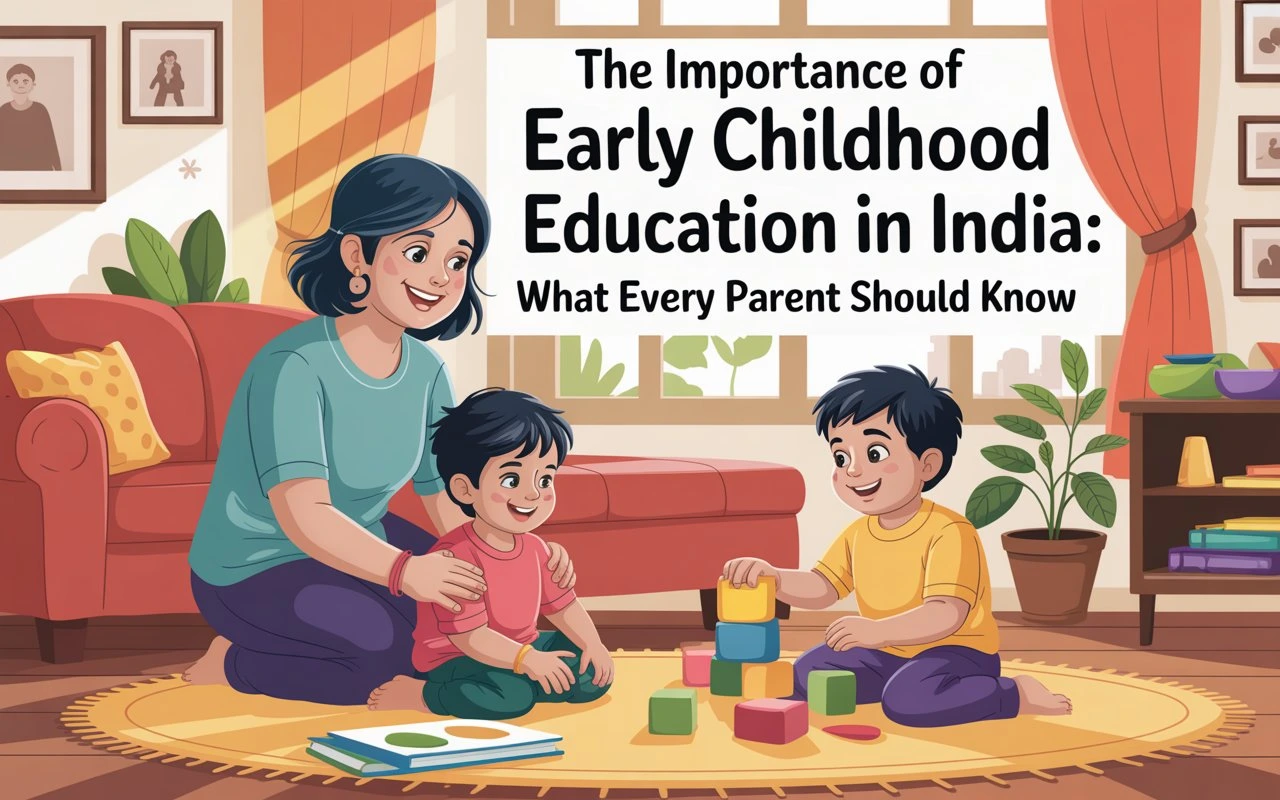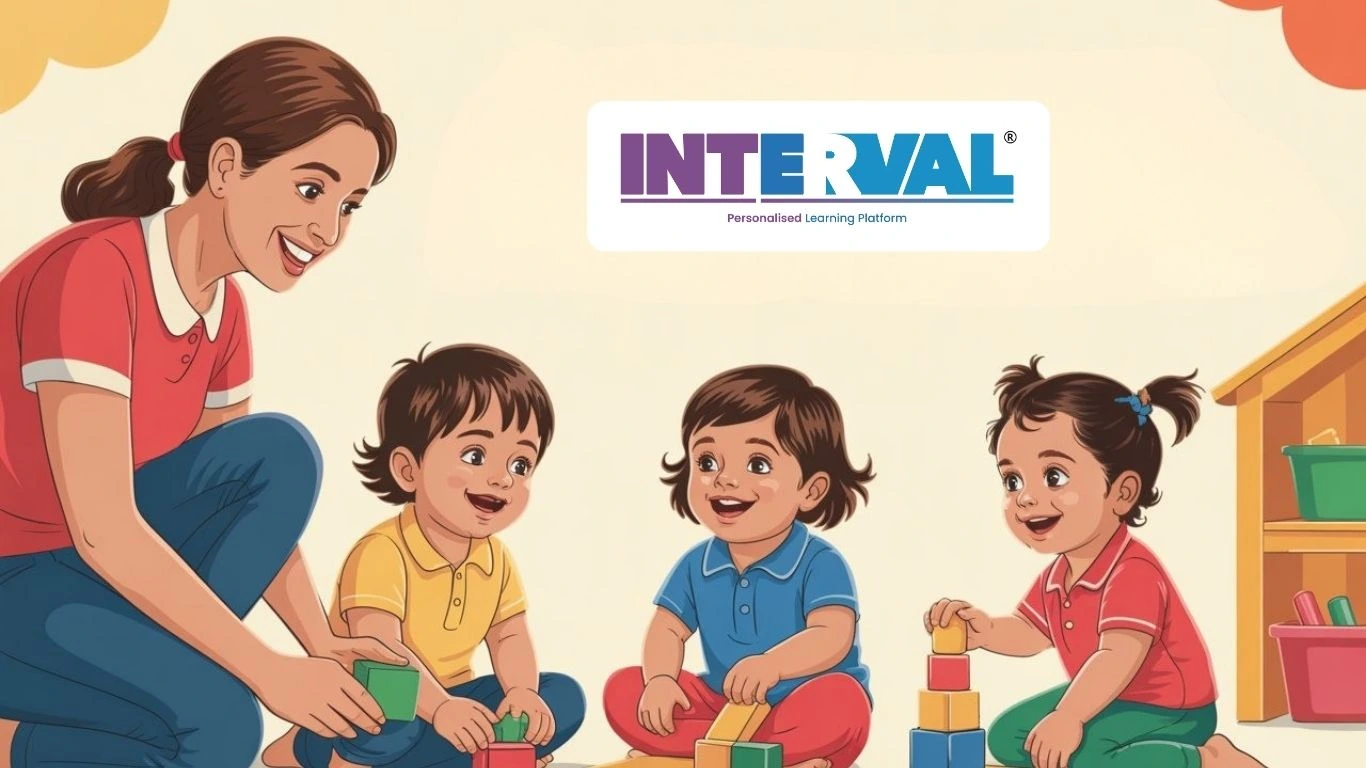The Importance of Early Childhood Care and Education in India: What Every Parent Should Know




Early childhood care and education is more than just the start of school; it’s the foundation for everything your child will learn and become. Between the ages of 3 and 6, a child’s brain is developing rapidly, picking up information, emotions, habits, and skills that last a lifetime.
In India, Early Childhood Education (ECE) is gaining the attention it deserves, especially with initiatives like NEP 2020 and programs like Vidya Pravesh and NIPUN Bharat. For parents preparing for LKG admission or simply wondering how to support their child's growth, this guide will walk you through the importance of early education in India and how you can help your child at home.

Early childhood education (ECE) refers to the learning and development children go through between the ages of 3 and 6, typically before formal schooling starts in Grade 1. In India, this stage includes Nursery, LKG (Lower Kindergarten), and UKG (Upper Kindergarten).
ECE is not just about academics; it’s about building a strong base for learning, behavior, health, and overall well-being. Through play, storytelling, activities, and routines, children develop important social, emotional, and cognitive skills.
Over 85% of brain development happens before the age of 6. The experiences children have during this time shape their thinking, memory, emotions, and even problem-solving abilities.
ECE helps children get used to a classroom setting. They learn how to follow routines, listen to instructions, interact with peers, and start with basics like alphabets and numbers; so they’re confident and ready when Class 1 begins.
By interacting with teachers and classmates, children learn to express their feelings, make friends, share, and build confidence. These social and emotional skills are just as important as academics.
Storytelling, rhymes, and group discussions in ECE help build vocabulary and communication skills, which improve reading and writing abilities later on.
These two years are not just preparation for school; they are school in the true sense. Here’s what children typically learn:
In LKG:
Read more in the article below
In UKG:
Read more in the article below
Learning at this stage should never be forced. In fact, the best way children learn in LKG and UKG is through play. Here's how:
Simple games and songs introduce alphabets, numbers, riddles, and sounds in a fun way. This helps kids grasp early reading and math concepts without stress.
The 20 best riddles for your child given in article below. Do check it out
Group games and activities help children learn how to cooperate, take turns, and solve problems together—skills they’ll use all through life.
Through role-play, storytelling, and show-and-tell sessions, kids learn to express themselves clearly and confidently.
Fine motor skills improve through drawing, colouring, threading beads, and puzzles. Gross motor skills grow through dancing, running, and physical games.
When children are encouraged to explore and ask questions, they develop a love for learning that carries over into primary school and beyond.
ECE programs are available across India in various forms:
The National Education Policy (NEP) 2020 has transformed how we look at early learning. It introduced a “Foundational Stage” from ages 3 to 8 (Nursery to Class 2), focusing on:
This approach aligns perfectly with how young minds learn best, through stories, songs, activities, and exploration.
Want to know more? Explore our Foundation Program below, designed to support early learning in a structured yet joyful way.
Play with your child using blocks, puzzles, storybooks, rhymes, and colours. Learning through fun builds confidence and curiosity.
Know what your chosen school expects; some schools may require basic knowledge of alphabets, numbers, and good habits.
Some great books for LKG include:
Encourage your child to eat by themselves, pack their bag, wear shoes, and clean up after play. These small habits go a long way in school readiness.
Talk to teachers. Ask questions. Understand what your child is learning and how you can support that at home.
Do you enjoy spending time with young children and helping them learn new things? Are you someone who feels happy guiding kids as they grow, play, and discover the world?
If this sounds like you, it’s time to turn that passion into a meaningful teaching career.
Our Early Childhood Preparatory Course (ECPC) is designed to help you become a confident and skilled early childhood educator. This course gives you the right tools, techniques, and knowledge to teach children in their most important early years.
Start your journey today, learn from home, at your pace, and build a future doing what you love. For more information check the article below
At Interval Learning, we offer personalized one-on-one online classes for LKG and UKG students that focus on:
Whether your child is just starting LKG or preparing to enter UKG, our structured online programs ensure they’re learning with joy and building a strong academic and emotional foundation.
Early childhood education is not about rushing into academics; it’s about giving your child the tools, confidence, and curiosity to succeed in school and life. The LKG and UKG years, if guided well, set the stage for everything that follows.
Make the most of these golden years. Support your child’s growth with love, attention, and the right learning environment.
Help your child build strong reading, math, and communication skills, all from the comfort of home.
Visit Interval Learning’s Kindergarten Program to get started! It’s the perfect time to start the new term with expert support.
Contact us today!
ECE typically covers ages 3–6 in India, including Nursery, LKG, and UKG.
In LKG, children learn alphabets, numbers, colours, and basic social skills. In UKG, they move on to writing, basic math, pattern recognition, teamwork, and early reading.
Yes. Play-based learning helps children understand concepts deeply, stay engaged, and develop multiple skills at once.
ECE improves brain development, emotional maturity, school readiness, language, numeracy, and social interaction.
Start with routines, introduce alphabets and numbers casually, encourage independence, and build curiosity through storytelling and games.
Absolutely! Our curriculum is designed to gently introduce children to learning in a fun and stress-free way.
We follow play-based, interactive teaching, using storytelling, rhymes, worksheets, and games.
We offer one-on-one attention, flexible schedules, trained educators, and home-based learning that’s both effective and comforting for young children.
Yes, our Foundation and Kindergarten programs are designed in line with NEP’s emphasis on play, foundational literacy, and joyful learning.